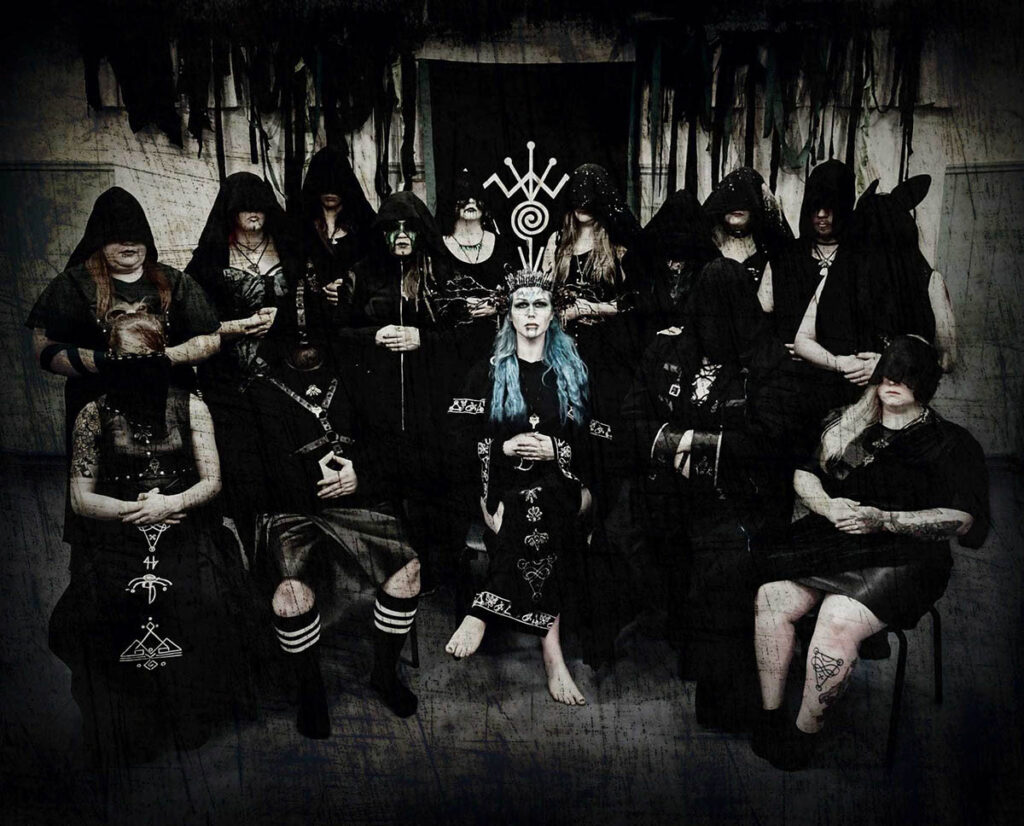A Muslim punk subculture and music scene
Religion: Islam
Founder: Michael Muhammad Knight
Founded: 2003
Location: United States
Other Names: Muslim Punk, Islamic Punk
Taqwacore represents a unique intersection between punk rock’s rebellious ethos and the cultural and spiritual dimensions of Islam, manifesting a vibrant subculture that has captured the attention and imagination of Muslim youths in Western societies. Originating from the creative works of American convert Michael Muhammad Knight, who sought to explore his dual identity through the lens of punk rock and Islam, Taqwacore (a portmanteau of “taqwa,” meaning piety in Arabic, and “hardcore”) has evolved from fiction to a tangible movement with real bands and followers.
The inception of Taqwacore can be traced back to Knight’s novel “The Taqwacores,” where he envisioned an Islamic punk rock scene that blended the raw, unapologetic energy of punk with themes central to Islam. This concept, initially fictional, resonated deeply with many, inspiring actual musicians to adopt the Taqwacore identity and start bands, thereby bringing Knight’s imagined community into reality. Bands like The Kominas, Secret Trial Five, and Vote Hezbollah emerged, each contributing their unique sound and perspective to the growing genre. These bands, through their music and performances, tackle themes of identity, faith, disillusionment, and resistance against stereotypes and Islamophobia, often challenging conservative interpretations of Islam as well as Western misconceptions about Muslims.
Taqwacore’s significance extends beyond its music; it represents a form of cultural and political expression for Muslim youths, particularly in the post-9/11 world where Islamophobia and stereotypes have become pervasive challenges. By adopting the punk ethos of questioning authority and societal norms, Taqwacore artists and followers push back against both the rigid expectations within their own religious communities and the prejudices they face in Western societies. This movement is not just about music; it’s a platform for expressing a “brown” identity that crosses national and cultural lines, uniting Muslims and non-Muslims alike who feel marginalized or misunderstood.
The movement has also been subject to controversies and criticisms, reflecting the tensions inherent in blending a religion known for its diverse interpretations and practices with a music genre synonymous with rebellion and nonconformity. Despite these challenges, Taqwacore has succeeded in creating a space where dialogue about faith, identity, and resistance can occur, fostering a sense of community among those who might feel alienated from both mainstream Western culture and traditional Islamic practices.
As a testament to its impact, the narrative of Taqwacore has been captured in documentaries and films, further illustrating the movement’s evolution from a fictional idea to a real-world phenomenon that continues to inspire and provoke. Through these visual stories, viewers are given a glimpse into the lives of Taqwacore artists and fans, their struggles, and their celebrations of a shared identity that defies simple categorization.
In essence, Taqwacore is more than just a subgenre of punk; it is a vibrant, evolving expression of a hybrid cultural identity that challenges both internal and external perceptions of what it means to be Muslim and punk. It stands as a powerful example of how art and music can serve as mediums for navigating complex identities, fostering understanding, and resisting discrimination.
image via Ultimate Guitar




